
Transcription
Johnny E. Mahaffey
June 18, 2017
The Novelist Portent
THE NON-DAY FATHER'S HOUR
The thing is--about Father's Day--you can look at every man around me and you'd discover that one out of every ten will have some kind of abandonment issues in their youth. It's like the overall, underlining trigger of criminality: bad parenting; or non-parenting.
And ironically, it seems that a non-present-parent, can often times be worse than a bad parent--to an extent. Especially in a case where a parent WAS present at the beginning--and then, suddenly was not. We would think, "Oh, they'll forget about them, and move on."
But that's not what occurs.
Erikson's Psychosocial Crisis chart shows that the age 0-1 year, is the "Trust vs. Mistrust" period, in which a child faces the question: "Can my parents and environment be trusted, or is my future insecure?" (Intro. to Psychology, by Dr. Joseph G. Johnson, p.192) The child quickly identifies with primary caregiver (i.e., where the attention, food, and majority of love come from), and learns that parent, and how to get MORE attention from that parent--this is usually the mother, but it can be the father, especially in cases of a working or absent mother. If the attachment is interrupted (in a worse case; the parent just gone overnight), the child may exhibit depression, withdrawal, an uneven temperament, and eventually "act out".
This break in the parental attachment can cause all kinds of problems that seem to mostly manifest their affect by the 12-19 year stage, " Identity vs. Role, Confusion/ Diffusion", in which the youth faces: " Can I develop my unique but meaningful roles, or is my distinction and social role unclear?" (ibid. Eric Erikson 1902-1904) Children face many obstacles in life-- band being minus one parent, a parent they love(d), plays a strong negative element in how they learn to navigate those... obstacles. Even a monthly visit of that parent, in a prison (at a tale with vending machine food, and a Monopoly board, or some other game, or no game or food at all), is something that can have a positive impact. The child needs to know that they're loved, and that they ARE NOT the reason of the absence.
These are hard topic's to deal with.
But choosing to have a child is a big dicision: and with it comes sacrifice of our own egos at times. Like, when we have to humble ourselves and allow our child to see the "other" Parent that we ourselves might not ever see again. Realizing its not about Us, it's about our child, and their mental well-being.
In piaget's Stages of Connitive Development, at the Sensorimotor Stage (0-2 years), there is a " development of object permanence", and an emergency of, " symbolic function." A time when the child has just put faith in the parent(s), that they will be there, return from each time the leave ( the room; or to go to work), and that home is home, everything in it is safe, and theirs. Jean Piaget proposed that a child " adapted cognitively as his or her world expands".(ibid. p.184), and it's a very important stage, and influence on who the child is to become. What I'm getting to- that may seem overly obvious-- is that any kind of sudden change that incites an extreme form of forced readjustment for the child, is threating to good mental health. The child will not feel safe in the world that's suddenly in question. A world that has betrayed the child. A parent, missing? A home, gone?
"Where is Daddy?"
"What happened to Mommy?"
Any living breathing parent, that poses no physical ( or direct mental threat) to the child-- should be in that child's life regardless of circumstance. Keeping them from that parent, based on like or dislike, differences of opinion, past mistakes, ect., is a selfish act that can take away from the child's quality of life. And in some cases can lead to DSS having to intervene. Children don't just, " act out," or "rebel,", for no reason whatsoever. Though, yes, there are lesser forms that are healthy levels of acting out or rebelling; but the acts I'm referring to are those that lead to DSS reports, and the letters sent out to the "absent" parent.
Something as simple as a letter, can change a child's world. I have no letters, or anything of any form, from my father. And it was a choice my mother made. A wrong choice, and after he died, all chances of me knowing him--the real him--went away. So, any parent out there that's choosing not to allow their child to have contact with their other parent (beit the mother or father), and that other parent has done no harm, and poses no harm, to the child... you might need to reconsider your decision. Being a parent is a big deal. If the other parent want to be an active role in the child's life, even if it's only letters-- you might need to facilitate that! For the child's sake; your own ego aside.
I wish I could be more in my own children's lives. May disappointment is in the women I loved, and chose to have kids with, because I thought they were stronger--better people inside. Instead of making the choices that they have, taking the same path as my own mother. But, then again, I'm the one who chose them, apparently causing the triggers of my disappointment. I wasn't as wise back then, as I am now. Today I'd make a great husband, and a good father. My permanence would remain as it should be, permanent. Always there when I'm needed. Thing is it's not too late now for the kids I have. It's just that whole issue of doing nothing is easier than doing... anything.
Maybe their mothers will find a change of heart; or rediscover the heart I suspect them to have from the start.
M
Other posts by this author
|
2025 dec 27
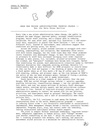
|
2025 dec 3
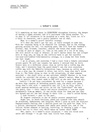
|
2025 nov 30
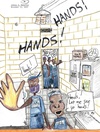
|
2025 oct 26

|
2025 oct 9
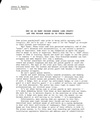
|
2025 oct 8

|
More... |
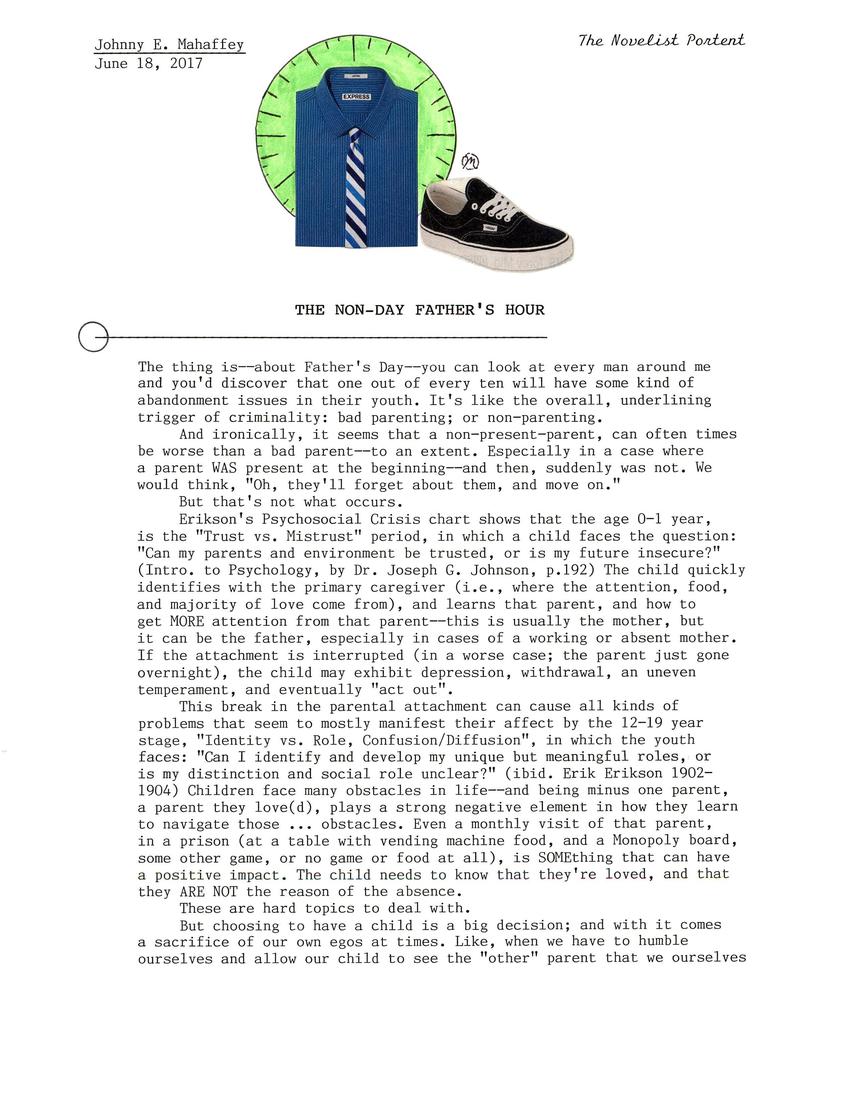
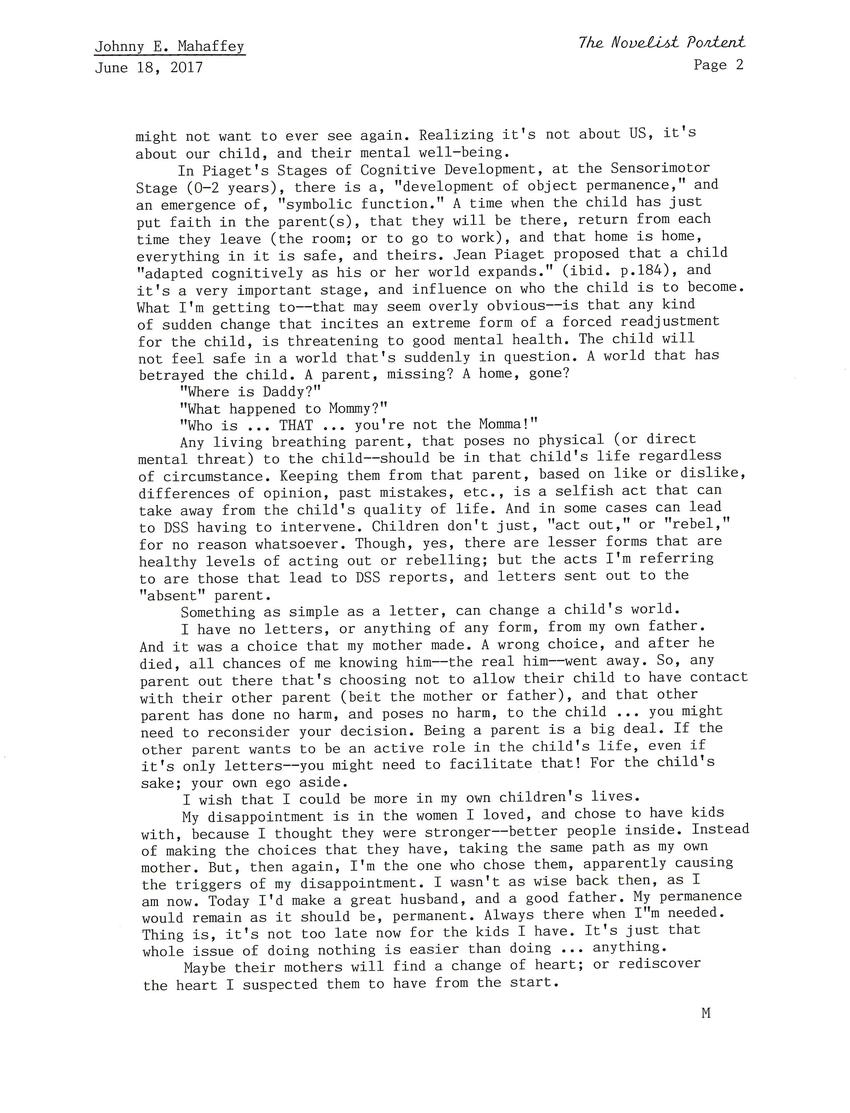

Replies